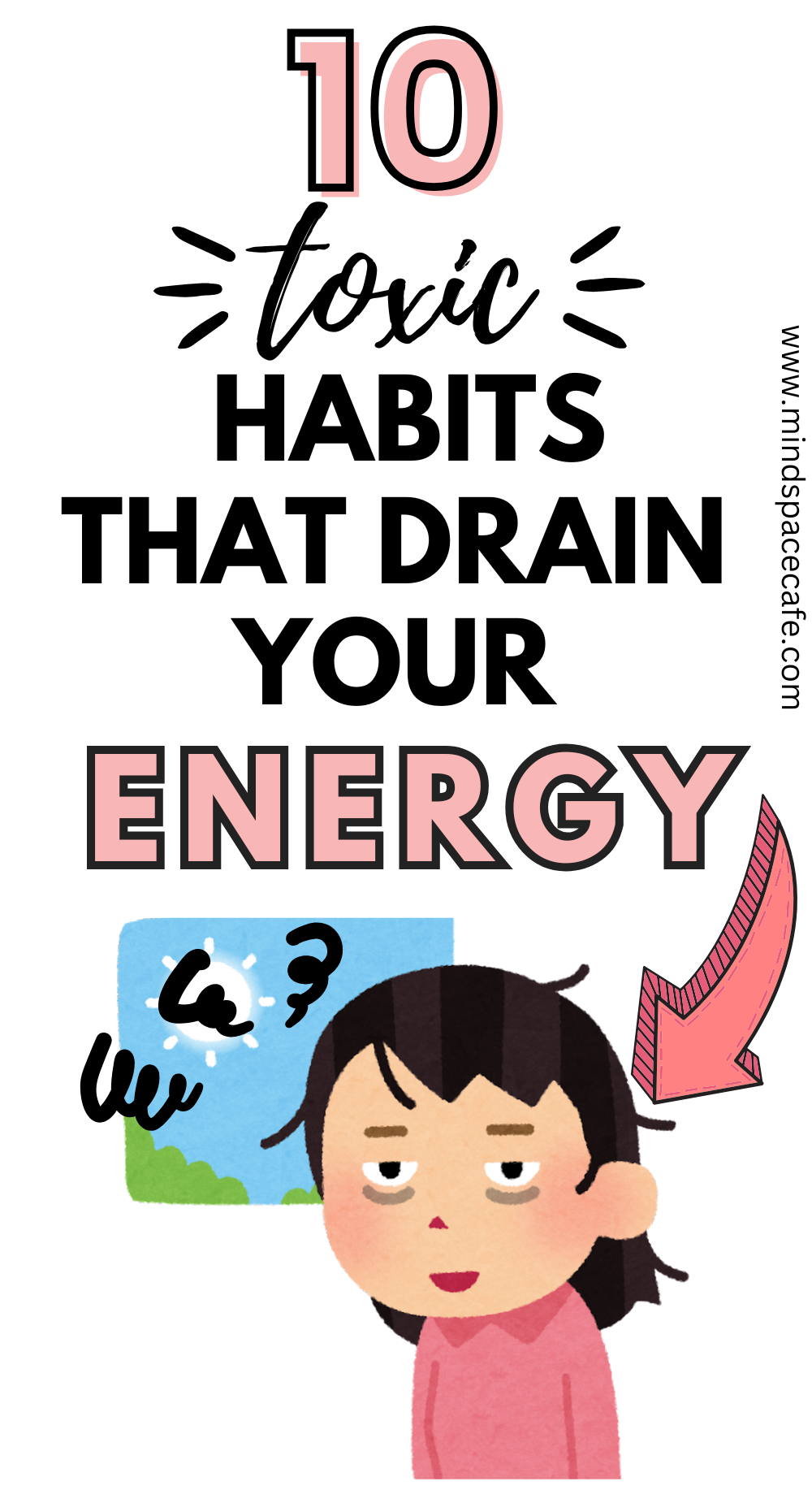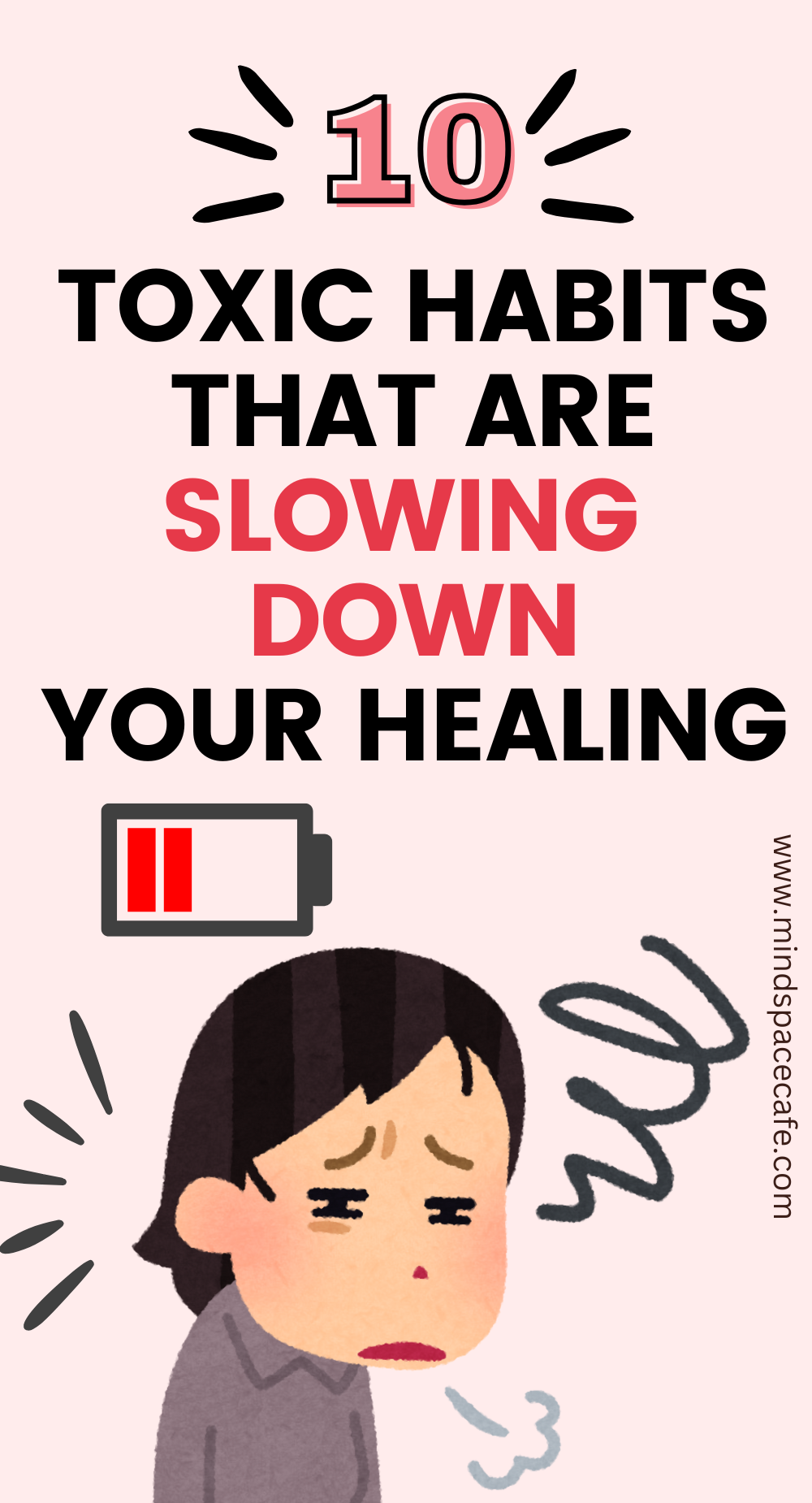Sometimes, at the end of the day – do you feel like you’ve been unproductive?
Your brain suddenly thinks of 10 different to-dos you haven’t ticked off.
You feel overwhelmed and exhausted at the same time.
And you’re busy trying to find ways to fit them all in the next day.
Is this you?
Do you always have things to do but never have time to finish it all?
If yes, then this post is going to help.
I will list a few activities that are probably draining your time and energy. Reducing these will give you more time and mental space.
Let’s begin.
This post contains affiliate links, meaning I may make a commission at no extra cost to you if you decide to click on a link and purchase something. Click here to read the full disclaimer.
1. Overthinking
I need you to realize that we can’t control everything.
It’s impossible.
There are too many moving parts and everybody makes mistakes.
Everyone has skeletons in the closet.
If you have a habit of excessively analyzing, questioning, or rehashing situations in your mind – it could mean that you’re a bit of an overthinker.
Do you find yourself stuck in a loop of repetitive thoughts, obsessing over “what-ifs” or worst-case scenarios, and struggling to make decisions because of a fear of making mistakes?
While thinking through problems is normal, overthinking taken to an unhealthy extreme will consume your mental energy and leave you drained.
How I combat overthinking:
- Engage in Distraction Techniques: Physical activities like exercise, hobbies, or talking to your friends can distract your mind from overthinking and give you a good break.
- Set Time Limits for Decision-Making: For big decisions, I do take longer – but for tiny decisions, I now set time limits and snap out of it.
- Practice Mindfulness: Mindfulness helps you stay grounded in the present moment, reducing the tendency to dwell on past events or worry about the future. Breathing exercises or meditation really helped me – I use the Headspace app.
- Challenge Negative Thoughts: When you catch yourself overthinking, ask yourself whether your thoughts are based on facts or assumptions. Even journaling will help!
2. Saying yes to everything
You have to realize that we all have 24 hours a day.
And you need to be okay with not being able to do everything.
This means you must prioritize specific tasks and let go of a few others.
Let’s say you planned to hit the gym in the evening.
But as you leave work, a colleague asks you to meet for coffee because she’s having problems and wants to discuss them.
So you say yes even though you don’t want to.
The coffee takes 3 hours, and by now, you don’t even have time to cook dinner for yourself, so you eat takeout and feel worse because you haven’t had time to work out or eat a healthy dinner.
Sometimes, saying no is essential.
When you say no to something, you’re saying HELL YES to the thing you actually want to do.
Being a people pleaser myself, it’s been hard to learn this, but my life improved when I became picky with my time.
In this post, I talk about how you can say no without feeling crappy.
3. Being a perfectionist

I speak to many people in my field who get so overwhelmed writing a blog post that they spend 5 to 6 hours scrutinizing everything.
Ultimately, they either don’t publish or delete the whole thing, saying they’ll work up the courage to attack it tomorrow.
No.
You need to do more of that activity to get better at a skill.
You cannot be perfect at Piano unless you play shoddily first.
You cannot become a good writer without writing a few garbage pieces first.
Nobody is judging you as harshly as you judge yourself.
So, get out there and create.
Do.
Be okay with not being the best until you have enough experience to be the best.
4. Multitasking
While it may seem like a time-saving strategy, multitasking actually depletes mental energy and reduces overall efficiency.
Our brains aren’t designed to focus on multiple things at the same time, and trying to do so leads to cognitive overload.
It’s a fact.
I am not making this up.
How to Reduce Multitasking and Save Your Mental Energy:
- Prioritize Tasks: Focus on one task at a time, starting with the most important one. Break your work day into chunks of focused time where you can give your full attention to one task without interruptions.
- Time Blocking: Allocate specific times of the day to handle particular tasks (e.g., answering emails, writing, meetings). This helps you avoid switching between tasks and reduces the cognitive load.
- Minimize Distractions: Create a workspace that limits distractions. Turn off notifications, silence your phone, and close unrelated tabs or apps so your brain can stay focused on the task at hand.
- Use the Pomodoro Technique: This technique involves working in focused 25-minute intervals followed by a short break. It helps reduce multitasking by encouraging you to focus on one task for a set period of time.
- Practice Single-tasking: Train yourself to focus on one thing at a time. It may feel slower initially, but you’ll notice increased efficiency, higher quality work, and less mental fatigue in the long run.
Since I work on 5 websites, I have learned to prioritize tasks and have uninterrupted time so I can get the maximum productivity.
5. Delaying your most important tasks
If you constantly scramble to finish the most critical tasks at the end of the day, then your priorities need a check.
Let’s say that fitness is currently your number 1 goal.
Then, doing a morning workout rather than the evening is better because it will leave you feeling accomplished and more relaxed.
It will also give you a dopamine rush that will help you feel more energized.
This is where the concept of Eat That Frog comes from.
It means doing your most critical, unmissable tasks first thing in the morning.
It really sets the tone for the rest of the day.
6. Looking at social media
Unless it’s for work, avoid going down that rabbit hole.
Social media has almost no benefits unless you’re a photographer, artist, or creator and must attract more business or build a brand.
It’s a huge time-suck and actually makes people feel lethargic/worse.
You can set a timer for those apps if it’s getting tough for you.
7. Sacrificing sleep
You might think that sacrificing sleep is the key to getting more done.
But it doesn’t work that way.
When you forego sleep, your brain and internal organs haven’t had time to reset and repair itself.
This results in brain fog and lethargy.
Caffeine is an artificial time boost that forces you to stay awake—it numbs your body’s desperate need to sleep and rest.
Instead of abusing coffee/tea, get 7-9 hours of sleep.
And believe me, your body will work much faster and more efficiently when you’re well-rested.
Your energy levels will be stable.
You will feel more alive.
Your brain will be bursting with ideas.
8. Comparing yourself to others
I kid you not – we all do this at one point in our lives.
And back when I was starting my online business, I was filled with so much envy because I’d look at other artists/bloggers and wonder how they got so far.
But I never realized that I was comparing my beginning to someone else’s middle.
Everyone has their own set of problems – there is nobody that is living a life without worry.
Crap happens to everyone.
It is best to focus on our own problems and fix our own lives – comparing never helps anyone – it’s a pointless habit that simply drains our mental energy.
9. Thinking about what others think of you

My father is very skilled and down-to-earth, but he’s very reserved, and I know he stops himself from doing things he really wants to do.
Watching him be self-critical has taught me to be more easy-going.
He always judges himself way too harshly.
I’ve seen him go to the store and come back without buying anything because he was too worried to ask anyone for help.
His anxiety was so self-crippling that it stopped him from having adventures and doing things he genuinely wanted to do only because he cared so much about what other people thought.
He did things he felt were “acceptable.”
And now, he does have regrets.
If you want to be happy, you have to stop worrying about what others think of you.
I stayed in an unhappy and abusive marriage only because I was afraid of the Divorcee tag.
The day I left my marriage, I found peace and happiness.
I also found a loving and caring partner, and we’ve been living extraordinary lives.
We take trips with our little dogs, play board games, get together with our friends, and eat really good food, and I can honestly say that none of this would have happened unless I had stepped out of my comfort zone and stopped caring about what other people thought.
When you’re authentic, you’ll connect with people as real as you are.
You will make friends, and you will find peace.
It’s easier to be yourself than to be someone you’re not.
10. Negative thinking
It is essential to be practical, but fighting yourself to do anything is both time-consuming and energy-consuming.
You have to believe in yourself.
You have to cut yourself some slack and give yourself grace.
We aren’t perfect.
We have to make mistakes to learn and get better at something.
And just because social media/TV shows you a filtered 5 seconds of someone’s life doesn’t mean everybody is always happy and living a perfect life.
Everybody has challenges.
Everybody is fighting something.
One thing that has helped me fight negative thinking is realizing that it doesn’t help in any way possible.
Instead of ruminating over my mistakes, I pause and ask myself how to correct them.
Think of solutions instead of berating yourself.
Accept that the problem has happened and find a way to rectify it.
Pin to save for later:



Conclusion:
Of course, all of these cannot be implemented in 1 day, but the trick is to go about it slowly and try to incorporate cutting out these habits one at a time.
Cutting out these tiny traits will skyrocket your productivity and leave you feeling much, much better!










